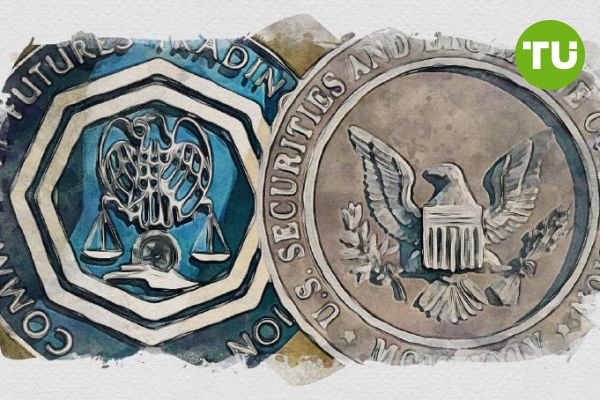U.S. SEC and CFTC align on crypto oversight
 U.S. SEC and CFTC align
U.S. SEC and CFTC align
After years of jurisdictional clashes and regulatory uncertainty, the U.S. Securities and Exchange Commission (SEC) and the Commodity Futures Trading Commission (CFTC) have announced a renewed commitment to collaboration on cryptocurrency oversight.
The move signals a potential turning point for the digital asset industry, which has long struggled with ambiguous enforcement policies and regulatory fragmentation, according to Coingape.
At a recent fintech symposium in Washington, D.C., CFTC Commissioner Caroline Pham emphasized the importance of bridging the gap between the two agencies. “Effective regulation requires coordination,” Pham stated, underscoring the need for a more unified approach. SEC Commissioner Hester Peirce, a vocal advocate for clearer crypto rules, echoed this sentiment, highlighting the SEC’s growing recognition of its jurisdictional limits.
Toward a More Defined Regulatory Framework
Historically, the SEC has taken an aggressive enforcement stance, categorizing most digital tokens as securities and pursuing legal action against crypto firms. Meanwhile, the CFTC has maintained that assets like Bitcoin fall under its commodity oversight, regulating derivatives and fraud in the space. This division has led to confusion for businesses and investors alike.
The SEC’s newly established Crypto Task Force is now working to delineate the agency’s authority more clearly. Meanwhile, recent legislative efforts, such as the Financial Innovation and Technology for the 21st Century Act (FIT21), aim to formalize the CFTC’s expanded role in regulating decentralized assets.
With the White House set to host a Crypto Summit on March 7, industry leaders anticipate further regulatory developments. The evolving cooperation between the SEC and CFTC suggests a shift toward a more structured and predictable framework—one that could provide long-sought clarity for the rapidly growing digital asset sector.
Meanwhile, Senator Ted Cruz is championing Texas as a global hub for Bitcoin innovation in the U.S., aligning the state’s resources with the growing digital asset industry. With three Bitcoin mining facilities in West Texas, Cruz is merging advocacy with action.













































































































































